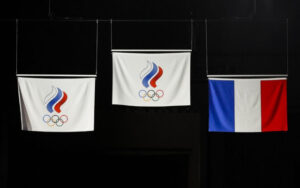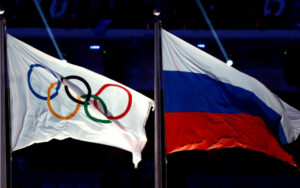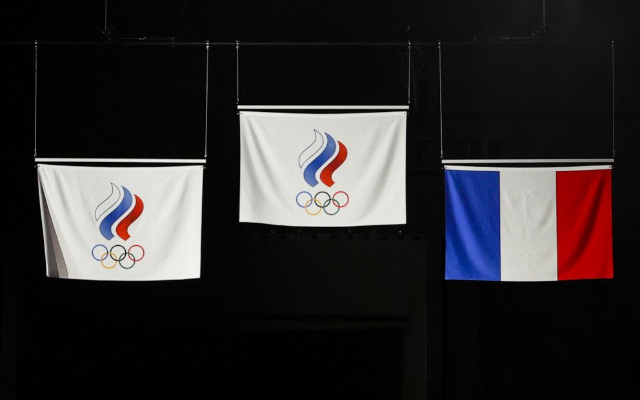
RevSportz Comment
Daniil Medvedev will be there, but Victoria Azarenka, from Belarus – Russia’s biggest ally – won’t. The Russian anthem, with lyrics by Sergei Mikhalkov and music composed by Alexander Alexandrov won’t be heard, and if any of the ‘Individual Neutral Athletes’ win, they will stand on a podium under an unrecognised teal flag, listening to a tune without lyrics.
In Tokyo, despite the Covid-19 pandemic and Russia being banned for its state-sponsored doping programme, as many as 335 athletes had competed under the standard of the Russian Olympic Olympic (ROC), winning 20 gold, 28 silver and 23 bronze medals. They were on the podium in sports as diverse as swimming, athletics, boxing, fencing, gymnastics, shooting, taekwondo, tennis and wrestling.
Then, the invasion of Ukraine happened. In February 2022, the International Olympic Committee (IOC), responding to outrage from around the world, banned Russian and Belarusian athletes from international competition. The ROC, which had been seen as divorced from the Vladimir Putin administration, was debarred in October 2023 once it was revealed that they had taken over sporting bodies in pockets of Ukraine like Donetsk and Luhansk.
Even then, the IOC’s executive board declared that it would be unfair to penalise athletes on account of the actions of a power-drunk dictator. And though the rules governing the participation of Athlètes Individuels Neutres (Individual Neutral Athletes) are stringent, they are allowed to be part of the Paris Games.
“No flag, anthem, colours or any other identifications whatsoever of Russia or Belarus will be displayed at the Olympic Games Paris 2024 in any official venue or any official function,” said an IOC statement in connection with this step. The fact remains though that only 15 Russians and 17 Belarusian athletes have complied with the conditions and been granted entry. More than half a dozen are Russian tennis players.
For the Latest Sports News: Click Here

Putin’s megalomania is just the latest setback for a generation of athletes who have been caught up in scandals for over a decade. As far back as the Rio Olympics in 2016, 67 Russian athletes spanning the entire spectrum of track-and-field events were banned from taking part after evidence of a huge doping programme was uncovered. An independently commissioned report had discovered widespread manipulation of urine samples between 2011 and 2015.
One of those directly impacted by the ban was Yelena Isinbayeva, the legendary pole vaulter who had won gold in Athens and Beijing, and taken bronze in London. “Thank you, everyone, for the funeral of athletics,” she said after the decision was made. “There was hope, but it was dashed. Let all those pseudo-clean foreign athletes breathe a sigh of relief and win their pseudo gold medals in our absence. They always did fear strength.”
Isinbayeva has worked closely with Putin in the years since, and the IOC conditions for participation in Paris clearly stipulated that the athletes must not have shown any support for the Russian invasion. Medvedev and company will also doubtless have to deal with hostile crowds, with the tone set by Anne Hidalgo, the Paris mayor on a visit to Kyiv in Ukraine earlier this year. Russian and Belarusian athletes were not welcome in her city, she said, in direct contravention of the IOC’s messaging.
After the sporting boycotts of the 1980s – the western bloc, except Great Britain, skipped the Moscow Games in 1980s to protest the Soviet Union’s invasion of Afghanistan, while the Iron Curtain countries, besides Romania, refused to go to Los Angeles in 1984 – sport had largely managed to keep politics at arm’s length. But Russia’s misadventures under Putin, and in doping laboratories, have left the IOC with little elbow room in this case.
Isinbayeva and other propagandists for a vile regime may say otherwise, but if Russian athletes really want to make a statement, they could do worse than reprise a version of the Black Power Salute (Mexico, 1968) with which Tommie Smith and John Carlos protested the appalling racism in their homeland.
Also Read: When Indian athletes refused to “Heil Hitler” at Berlin Olympics




